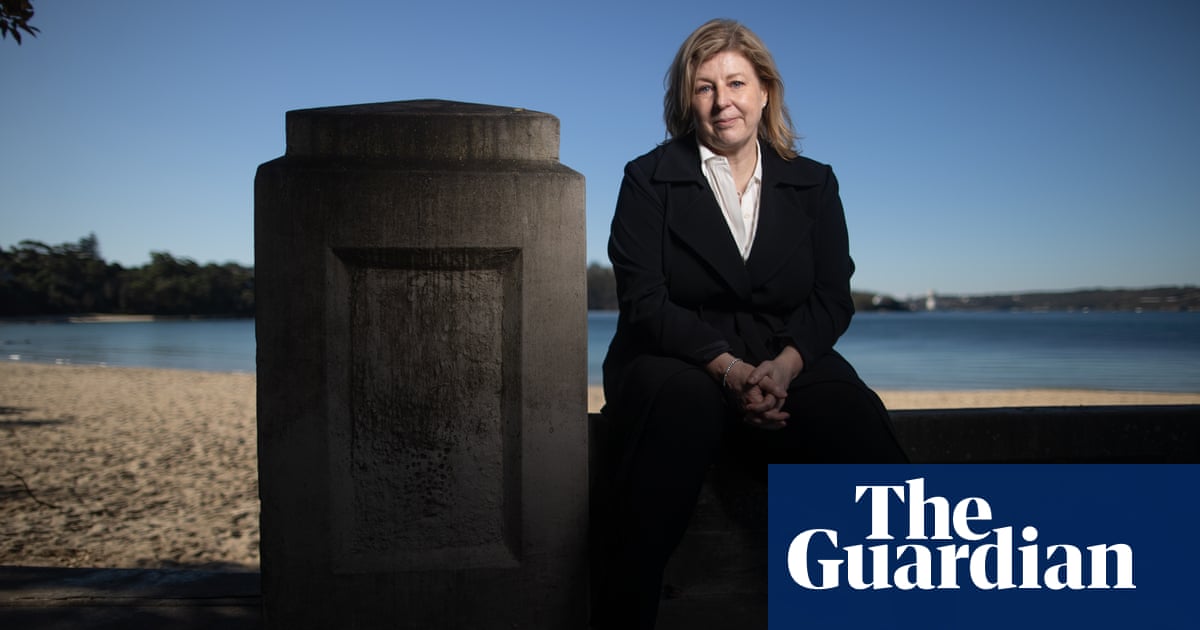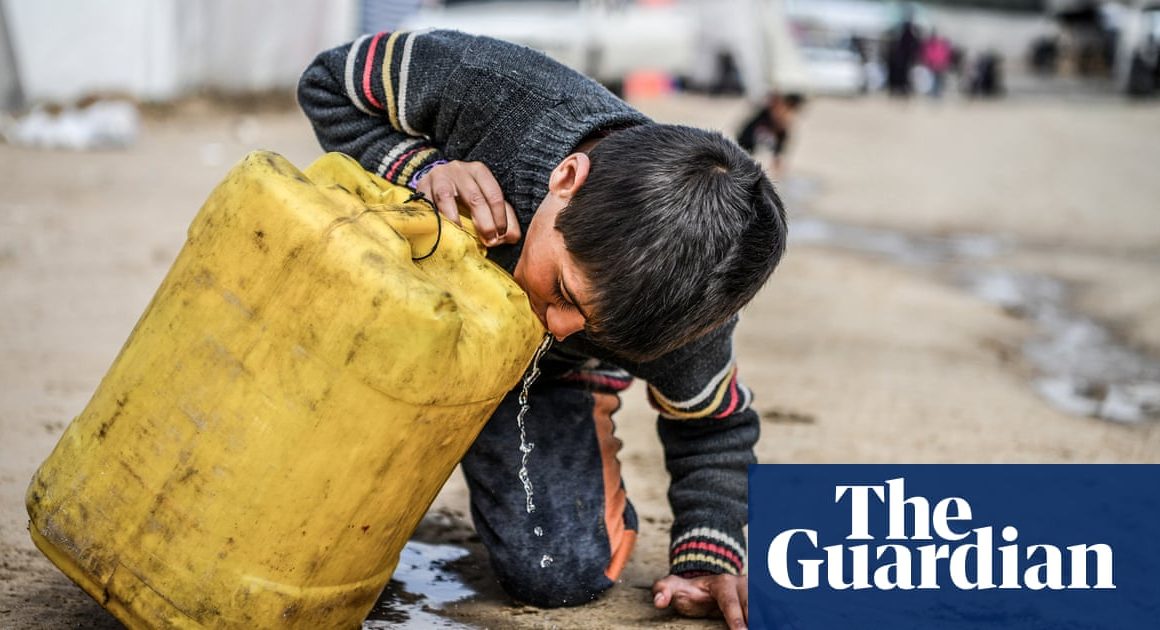Liane Moriarty, one of Australia’s most successful living novelists, is feeling the trepidation that always precedes publication of a new book.
But on a pristine, clear-skied, unseasonably mild winter’s day, a walk at one of her favourite places in her home town, Sydney, a city invariably centrally cast in her novels, is perhaps a temporary antidote to such authorial novel-birthing anxiety.
And so we stroll, as the New York Times bestseller has done regularly for many years, along The Esplanade bordering Balmoral Beach. It is a postcard-picturesque place of towering Moreton bay figs, azure water and yellow sand that is as quintessentially Sydney as the Opera House or Harbour Bridge.
Of the imminent launch and gruelling promotional tour (Australia, North America, Canada, UK) for her new novel, Here One Moment, Moriarty says, “It always fills me with trepidation. But it’s also a great feeling – that’s the point of it, to have people reading it and ideally saying nice things to you.’’
She relishes the one-on-one reader interactions, their interpretations of her books and the personal import of her words to them. She recounts a woman approaching her at a signing table to explain the significance of perhaps Moriarty’s most famous book, Big Little Lies, about female friendship, coercive control and retribution.
The woman had bought copies for all her friends. “That was her way of telling them that she had been in a similar domestic violence situation,” says Moriarty. “Some things you just don’t expect.’’
But these mega-publicity tours are exhausting. “I hate it by the end because I’m filled with self-loathing because I can’t stand the sound of my own voice, and you’re telling the same stories and making the same jokes over and over and I can’t bear it by the end. But … there is a lovely midpoint where I am not so nervy and I can really enjoy it.’’
Moriarty, 57, is “definitely’’ a shy person. She is softly spoken and transparently modest. She laughs often and her responses are considered as she discusses the paradox of the solitary novelist who must suddenly transform into “this sort of person who can speak to hundreds of people’’.
“But I can do it. I’m not so introverted that I don’t need people. I realise that when I go away to write for a week at a time. At the beginning I’m just loving all of that solitude. And then I find I start going into shops and I just start chatting to people … I need to talk.’’
On this tour, she suspects, readers will want to share with her “a lot of sad stories’’. And that is a natural segue to Here One Moment, a hefty 500-plus page novel about life, death and fate with the kicker line, “If you knew when you were going to die what would you do differently?’’
A big question, that.
The novel opens on a delayed flight from Hobart to Sydney. Mid-flight a seemingly unremarkable woman wanders the plane predicting how and when each passenger will die. The plot becomes more chilling as deaths occur and the increasingly anxious surviving characters ponder mortality, fate – and how to change its course.
The book had its genesis on Moriarty’s own delayed flight from Hobart to Sydney.
“And I was looking around at the passengers and the cheerful thought came into my head – ‘every single one of us is going to die’,” she says.
“At the time a few things had happened that meant I was focused on my own mortality. Apart from being in my 50s which is when you do start [to contemplate that]. Number one was that my sister was diagnosed with breast cancer, then I lost my father, then we had the [Covid] pandemic – so all of us stared at the face of death. And then I was diagnosed with breast cancer.
“My sister and I are both fine now. But definitely at that time of my life I was focused on the finite nature of life … I was thinking, ‘I wonder how I’m going to die?’ I was wondering, ‘How is everyone on this plane going to die?’’’
She trails off momentarily, distracted by a young woman on the beach photographing herself.
Moriarty laughs. “Oh look,’’ she says, “there’s influencers here! Look – just over here.’’
Moriarty evidently observes and listens intently to what’s going on around her. When we sit in the shade for a while her train of thought is interrupted, briefly, again. This time by a wandering child scooped up by a young mum as they amble towards the edge of a low jetty.
She often takes notes on her phone about people’s mannerisms, their vernacular and anything she overhears, she says. She exudes a bowerbird’s sense of continuous material gathering.
after newsletter promotion
“I’m definitely an eavesdropper. Oh god, some of the conversations you hear! And that comes from my mother. You’d go out to dinner with her and you’d see this glazed expression come across her face and she’d lean out and listen to what others were saying nearby.’’
Her eye for everyday human (especially male/female) interaction and her acute ear – for speech and the prosaic banter of suburban mostly white, middle-class life – resonates profoundly and universally both on the page and in screen adaptations.
Her characters have such widespread appeal in their dilemmas and their landscapes that screen adaptations can shift the books’ settings radically, yet seamlessly from Sydney’s upper north shore to Monterey, California, in Big Little Lies and from Byron Bay to a fictitious California town in Nine Perfect Strangers.
Of people and their inner ruminations, Moriarty says, “That’s really my interest. I enjoy that. And I feel that’s my strength. Whereas if it came to describing this landscape – this beautiful landscape – I would have trouble. So, it’s relationships and people for me … though you’ve got to give a bit of landscape. You’ve got to say where you are. But I feel like I’ve got to work hard at that.’’
While all of her adult novels (she has also written for children) have been optioned for screen adaptation, she never writes with that as a goal. And, she says, she will always set her work in and around Sydney where she has lived (currently on the lower north shore) since birth.
Her characters mostly come from a familiar milieu. She says she is “definitely writing what I know’’. Which perhaps accounts for her characters’ authenticity and avoidance of the identity pitfalls that sometimes await riskier novelists.
“It’s tricky. I don’t want every single character to be exactly me – and I noticed in my first novels that everybody sounded a bit Irish Catholic! But obviously I’m not going to write a main character who is completely different to what I know and understand.’’
We continue in the soft dappled light under the figs’ canopies amid mums and dads with prams, joggers, elderly parents strolling with adult progeny. To our right a lone red-capped breaststroker bobs up and down across the glassy bay. The birds – cockatoos, cawing gulls, chattering parrots – add ambience to this beauty.
It’s a serene, good-to-be-alive afternoon. Moriarty’s latest novel brims with such existential celebration – and, then, darkness. Death, despite its inevitability, is a weighty, challenging thing for a writer to sit with through the long gestation of a book manuscript.
“I got more and more interested in [questions of] how do you control your own life and what can you control and what can’t you control? And I liked having those thoughts in my mind and I liked having the thought – particularly on a day like this – how can you not be grateful to be alive? You know, it’s just a joy.’’
Our walk ends as Moriarty prepares to be photographed (she is endearingly, ever-so-slightly uncomfortable about it). Her eyes are drawn to a wedding in the nearby rotunda.
She smiles. “A wedding. Everybody loves a wedding – don’t they?’’
After the photographs she returns.
“Has anyone stood up and objected?’’ she asks.
There just might be a plot in that.
-
Here One Moment by Liane Moriarty is published by Macmillan Australia, available now. It is available in the US and Canada on 10 September and in the UK on 26 September.










